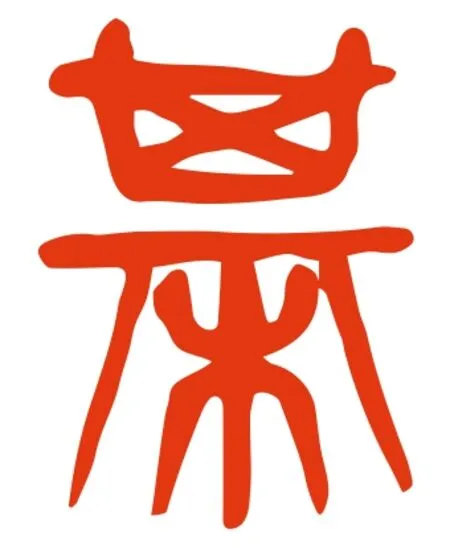棋
2017-07-31HUANGWEIJIA,LIUJUE
棋
Think like a Go player!
在中国,围棋不只是一种游戏,而是一种思维方式
“ If the way of Go is ‘100,’ I only know about seven,”Japanese Go master Hideyuki Fujisawa once remarked. Humility aside, the recent defeat of world champions Lee Sedol and Ke Jie by AlphaGo has arguably proven Fujisawa’s point. “I only know abouttwo percent...mankind’s knowledge of Go is far too limited,” Ke admitted at a press conference in May.
Ancient Chinese viewed Go with awe. Faced with its in finite possibilities and abstract thinking, pushing the limits of the human mind, they coped by mystifying the game. A description of Go’s invention in theComprehensive Mirror of Immortals in History, a 18th-century collection of legends, states,“The chess board is square and still, while the Go pieces are round and mobile. They represent the Earth and Heaven. Since the invention of the game, there’s none who can figure out a universal solution.” According to the book, the legendary emperor Yao was seeking to teach his dim but aggressive son a lesson. He met two immortals by a river, who suggested using Go, 围棋 (w9iq!, lit.“encircling chess” ).
棋 (q!, chess) alone can refer to any type of chess—象棋 (xi3ngq!, Chinese chess), or国际象棋 (gu5j# xi3ngq!, lit. “international chess,” the kind with bishops and queens). Go’s English name came from the Japanese pronunciation of the character, a variant of 棋 (q!) in Chinese. The former makes more sense referring to Go, given the stone radical, 石 (sh!), at the bottom of the character, since Go pieces were often made of stone.
Traditionally, 弈 (y#) was the Chinese character referring speci fically to Go. Although 围棋 is used in most discourses, 弈is still found in a series of phrases related to Go: For instance, playing chess can be 下棋(xi3q!) or 对弈 (du#y#). The term 博弈 (b5y#), originally referring to playing Go, could also mean “to gamble,” while game theory in modern mathematics is translated as 博弈论 (b5y#l&n). In this sense, 博弈 refers to the act of two or more opposing parties utilizing certain strategies to gain advantage or pro fit.
A major form of entertainment in ancient China, Go has left linguistic traces in many phrases and idioms. Those having dif ficulty making up their mind are often said to be 举棋不定 (j^ q! b% d#ng, lit. “holding a Go stone, but unsure where to put it), the implication being that one must not allow doubt and hesitation to interfere with one’s goals.
It is said that a bad Go player only focuses on picking off an opponent’s pieces from the board, while a good player seeks superior advantage with a long-term strategy. In such circumstances, every turn could be life or death. One false move could see the loss of the whole game, or 棋错一着,满盘皆输(q! cu7 y# zh`o, m2n p1n ji8 sh$)—a truth that could be applied to any endeavor.
Any competition can be described like a game of Go: one may meet one’s match, 棋逢对手 (q! f9ng du#sh6u, lit. “ to encounter an equal opponent at Go”), or encounter a stronger opponent, 棋高一着 (q! g`o y# zh`o, lit. “an opponent who is a notch above you at Go”).
Since Go often involves complicated strategies, a game is referred to as a 棋局(q!j%, lit. “a situation confronting players in a chess game”). Overly focused players may turn a blind eye to what’s hidden in plain sight, a phenomenon called 当局者迷,旁观者清 (d`ngj%zh0 m!, p1nggu`nzh0 q~ng), which translates to “spectators see the game better than the players”.
Yet while a player in the midst of making moves may miss the bigger picture, it could also be argued that those who are directly involved know the game better. That is why spectators are referred to as 局外人 (j%w3ir9n, lit. “people outside the context”), a term which also refers to outsiders in general—it’s the Chinese title of Camus’sThe Stranger.
Go terminology has even managed to find its way into everyday communication. A game is divided into three stages, 布局 (b&j%, opening moves), 中盘 (zh4ngp1n, mid-game) and 官子 (gu`nz@, final stage). 布局 can also mean any kind of arrangement, layout or composition, while 官子 or the verb 收官(sh4ugu`n) is also used to refer to the final stage of any large project. For instance, the fifth year of a government Five-Year Plan is always referred to as 收官之年 (sh4ugu`n zh~ ni1n, a final-stage year).
From mystic origins to modern-day politics, Go is not only a game––it’s a whole way of thinking.
- HUANG WEIJIA (黄伟嘉) AND LIU JUE (刘珏)

SEAL SCRIPT

CLERICAL SCRIPT

CURSIVE SCRIPT

REGULAR SCRIPT
WHERE TO BUY
BEIJING
• Major 7-Eleven stores
• Lawson
• Page One
• The Bookworm
• Beijing Language and Culture University (Phoenix Tree Bookstore)
• BELENCRE (Solana)
• April Gourmet
• Cozy Bo2k
• Beijing Foreign Languages Bookstore, Wangfujing
• Hanfenlou Bookstore
• Bright Power Bookstore (South Railway Station)
SHANGHAI
• Boocup
• Cityshop
CHENGDU
• The Bookworm Chengdu
• 7-Eleven stores
• Wowo stores
• FamilyMart
• Page One
SHENZHEN
• Old Heaven
• Bright Power Bookstore (North Railway Station)
TIANJIN
• Tonglou Bookstore
SUZHOU
• Eslite Bookstore
• The Bookworm Suzhou
• Zuowang Bookhouse
HANGZHOU
• Page One
• Kubrick Bookstore
北京
7-11部分店铺
罗森连锁超市
叶一堂
老书虫
梧桐书坊(北京语言大学书店)
字里行间(蓝色港湾店)
绿叶子连锁超市
中图外文书店
王府井外文书店
涵芬楼书店
北京南站汇智光华书店
上海
中图书店
城市超市
成都
老书虫
7-11连锁超市
Wowo连锁超市
全家连锁超市
叶一堂
深圳
旧天堂
深圳北站汇智光华书店
天津
佟楼书店
苏州
诚品书店
老书虫
坐忘书房
杭州
叶一堂
库布里克
